The beautiful weather here in Seattle has us all thinking of summer. Are you considering installing a swimming pool? Solar pools are energy-efficient, can save you money when it comes to operating and maintaining, and add value to your Seattle home.
You can significantly reduce swimming pool heating costs by installing a Seattle solar pool heater. They're cost competitive with both gas and heat pump pool heaters, and they have very low annual operating costs. Actually, solar pool heating is the most cost-effective use of solar energy in many climates.
How Solar Pools Work
Most solar pool heating systems include the following:
- A solar collector -- the device through which pool water is circulated to be heated by the sun
- A filter -- removes debris before water is pumped through the collector
- A pump -- circulates water through the filter and collector and back to the pool
- A flow control valve -- automatic or manual device that diverts pool water through the solar collector.
Pool water is pumped through the filter and then through the solar collector(s), where it is heated before it is returned to the pool. In hot climates, the collector(s) can also be used to cool the pool during peak summer months by circulating the water through the collector(s) at night.
Some systems include sensors and an automatic or manual valve to divert water through the collector(s) when the collector temperature is sufficiently greater than the pool temperature. When the collector temperature is similar to the pool temperature, filtered water simply bypasses the collector(s) and is returned to the pool.
Solar pool collectors are made out of different materials. The type you'll need depends on your climate and how you intend to use the collector. If you'll only be using your pool when temperatures are above freezing, then you'll probably only need an unglazed collector system. Unglazed collectors don't include a glass covering (glazing). They are generally made of heavy-duty rubber or plastic treated with an ultraviolet (UV) light inhibitor to extend the life of the panels. Because of their inexpensive parts and simple design, unglazed collectors are usually less expensive than glazed collectors. These unglazed systems can even work for indoor pools in cold climates if the system is designed to drain back to the pool when not in use. Even if you have to shut the system down during cold weather, unglazed collectors may be more cost effective than installing a more expensive glazed collector system.
Glazed collector systems are generally made of copper tubing on an aluminum plate with an iron-tempered glass covering, which increases their cost. In colder weather, glazed collector systems—with heat exchangers and transfer fluids—capture solar heat more efficiently than unglazed systems.
Therefore, they can be used year-round in many climates. Glazed collectors also can be used to heat solar hot water year-round.
About Solar Pool Installation and Maintenance
The proper installation of a Seattle solar pool heating system depends on many factors. These factors include solar resource, climate, local building code requirements, and safety issues. Therefore, it's best to have a qualified solar thermal systems contractor install your system.
After installation, properly maintaining your system will keep it running smoothly for 10–20 years. Consult your contractor and read your owner's manual for maintenance requirements. Your collector should require little maintenance if the pool's chemical balance and filtering system are checked regularly. Glazed collectors may need to be cleaned in dry climates where rainwater doesn't provide a natural rinse.
When screening potential Seattle solar energy technicians for installation and/or maintenance of a solar pool, ask the following questions:
- Does your company have experience installing and maintaining solar pool heating systems?
Choose a company that has experience installing the type of system you want and servicing the applications you select.
- How many years of experience does your company have with solar heating installation and maintenance?
The more experience the better. Request a list of past customers who can provide references.
- Is your company licensed or certified?
As with any major home improvement project, be sure the solar contractor you choose has a valid contractor license.

